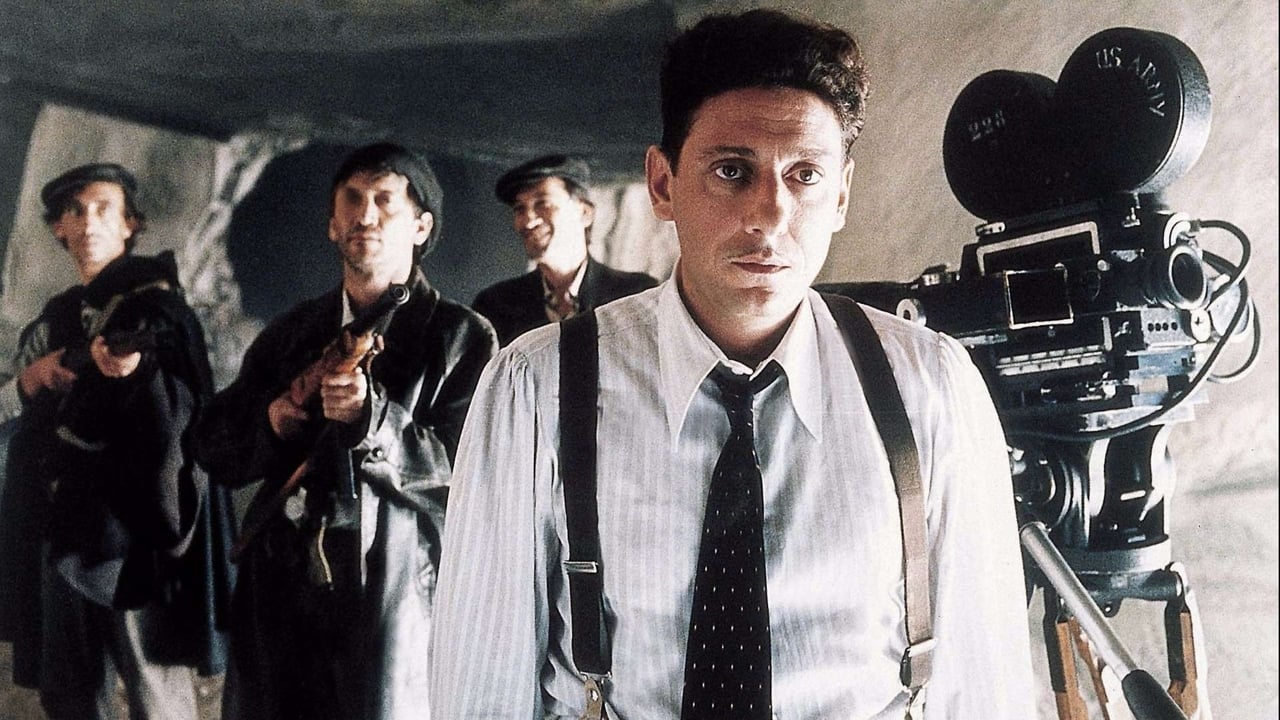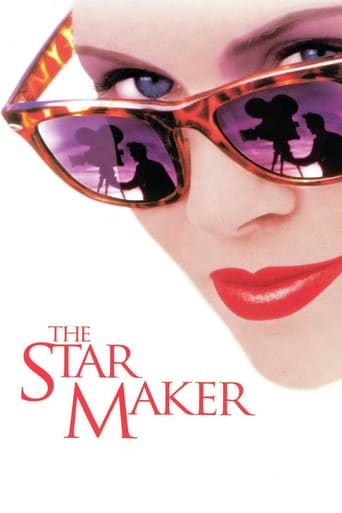

Really Surprised!
... View MoreIt's funny, it's tense, it features two great performances from two actors and the director expertly creates a web of odd tension where you actually don't know what is happening for the majority of the run time.
... View MoreJust intense enough to provide a much-needed diversion, just lightweight enough to make you forget about it soon after it’s over. It’s not exactly “good,” per se, but it does what it sets out to do in terms of putting us on edge, which makes it … successful?
... View MoreThere are moments that feel comical, some horrific, and some downright inspiring but the tonal shifts hardly matter as the end results come to a film that's perfect for this time.
... View MoreThis movie is about the cinema and the excitement it makes between people. Like many other Juiseppe Tornatore's movie, this deeply delighting movie is comprised of simplicity, drama, and comedy. Cinema looks like life and keeps people away from their loneliness; people search their hopes and wishes in the screen. It is the secret of cinema and its eternity which allures people to lay themselves bare in front of the Joe Morelli's camera. They don't want to be star, they just want to be themselves and the camera makes them to be seen. In front of the camera, they are more honest than any other time in their lives; the Young speak about their wishes and dreams and the older people tell story about their past and memories. But if really Joe Morelli deceives them or not; the behavior of people toward him, after he's released from prison, shows they are not really mad at him as if People know that he gave them what they enthusiastically wanted. The growing emotional relation between Morelli and Beata are not as strong as it is supposed to be and it is the weak of the movie. It might be due to Tornatore tries to bold the funny part of the movie rather than the drama.
... View MoreJoe Morelli (Sergio Castellitto) is a flimflam man who is driving around the rural villages of Sicily shortly after World War II selling potential stardom for fifteen hundred lira. He has a motion picture camera and loudspeaker on his truck. As he drives through the villages he broadcasts to the people that he is from the film industry of Roma and he is giving screen tests in order to discover natural talent.He sets up his truck and tent typically in the town square. His technique is to tell everyone that they have a wonderful face, hidden talent, that they are naturals and diamonds in the rough. He hands out fliers with some dialogue from "Gone with the Wind" on them that they should practice reading before appearing before his camera. He has discovered that people will fall for his flattery and pay him for the fake screen tests.As we watch the film we discover that people will put their hearts and souls into the experience of appearing before his camera. They don't just read the lines from Gone with the Wind. They tell their life stories in miniature. They bare their hearts and souls to the flimflam man in the hope that someone will hear and see their anguish, their pain, their experience. To Morelli, who has been to Hollywood and failed, this is just a way to make a lira. He has a gift for the hustle and is blind to the real emotion that he evokes.A woman believes his teenaged daughter has the talent to make it in the movies. She begs Morelli to take her to Roma. She even has sex with him and promises to allow him to be her daughter's first lover. But Morelli moves on to the next town. He is stopped by the local police chief, but Morelli manages to flatter him into appearing before his camera and then applauds the chief's performance. Three highwaymen stop to rob Morelli. He is able to convince them that Roma longs for their raw talent. And so on, as he travels over the cobblestones and over the winding roads.Finally he meets beautiful Beata (Tiziana Lodato) who is 15 or 18. She isn't sure. She works in the convent, bathing the sick and scrubbing the floors. She exposes herself to the local tax man to raise the 1500 lira needed for Morelli's screen test. She is strikingly beautiful from head to toe, and the tax man exclaims, "You are a statue!" when he sees her body. Morelli is reluctant to get involved with someone so young even though she throws herself at him. What happens after this I will not say since it would spoil the film for those who have not seen it. But watch for the con man to get conned, among other things. Despite his villainy, there is a sense that Morelli is a man that we can identify with and understand. I think it is this quality that director Giuseppe Tornatore has developed in his character that carries the film, and Sergio Castellitto whom I saw recently in Non ti muovere (Don't Move) (2004) really becomes the part.Tornatore, who made a splash with the critically acclaimed Cinema Paradiso (1988) wrote the original material here and worked on the script in addition to directing. While I thought Cinema Paradiso was an excellent film, I liked this one even more. Both are original works of art, but I found L'uomo delle stelle more engaging. Particularly striking are the beautiful village scenes, the faces of the people, and the photography of the Sicilian countryside and ruins.(Note: Over 500 of my movie reviews are now available in my book "Cut to the Chaise Lounge or I Can't Believe I Swallowed the Remote!" Get it at Amazon!)
... View MoreMagical, simple and funny and sad. Tornatore can do pretty much everything he wants with a movie. SO far all the movies I have seen directed by him are simply excellent. When watching the movie I will pay close attention to the long acts and way the camera moves. What a perception and style of directing!!
... View MoreTornatore did to me with this movie what he failed to do with "Cinema Paradiso". I used to blame myself for being insensitive comparing to people's reactions after "Cinema Paradiso" but now after this movie I know that it's not me, but the "virgin" audience in good movies that overreacted.The Starmaker is simply Perfect. The Mute's scene deserved an Oscar by itself. As a mater of fact every scene in the movie was so cinematographic that could have been easily a short movie by itself. As for the New York Times comments on the movie...... what do you expect by critiques who hailed "Shakespeare In Love". People have to understand that the old critiques of NYT that actually knew more than we do about movies are not around anymore! 11out of 10
... View More